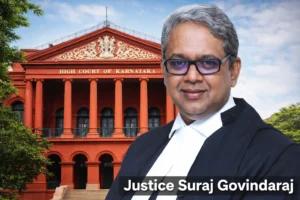The Orissa High Court recently emphasized that superior judicial authorities should avoid making derogatory remarks or scathing criticism against judicial officers without providing them a chance for a fair hearing. The Division Bench of Justice Sangam Kumar Sahoo and Justice Sibo Sankar Mishra made this statement while quashing the adverse remarks recorded in the Confidential Character Roll (CCR) of a former Registrar General of the High Court, Malaya Ranjan Dash.
Read Also:- Orissa High Court Cancels Death Sentence Over Unfair Trial In Minor's Rape-Murder Case, Orders Fresh Trial
The Court observed that passing such remarks without hearing the concerned officer violates the principles of natural justice. "The Superior Authority should ordinarily refrain from passing strictures, derogatory remarks, and scathing criticism," the Bench stated, pointing out that this action had caused serious prejudice to the petitioner.
Case Background
Malaya Ranjan Dash, a District Judge (Super-time Scale), was serving as the Registrar General of the High Court when an issue arose over his handling of a suo moto writ petition. This was in response to a directive issued by the Division Bench on February 24, 2021. Although Dash followed the directive, the Chief Justice allegedly expressed displeasure about his actions, triggering departmental proceedings against him. Despite being exonerated of some charges, Dash faced penalties and adverse remarks on his integrity in the CCR.
The petitioner challenged the adverse remarks, claiming that the procedure for recording such remarks was not followed. The Court reviewed the General Rules and Circular Orders (GRCO), emphasizing that the integrity assessment of judicial officers must be based on documented facts, not vague allegations. "The Judge-in-charge must report any questionable integrity based on solid evidence, not assumptions," the Court clarified
The Court further stressed that the integrity remarks in the CCR should be based on proper procedure, ruling that such remarks cannot be made casually. "These guidelines are mandatory," it declared, underlining the importance of adhering to established protocols.
The petitioner’s representation against the adverse remarks was rejected without any reasoning. The Court noted that such a rejection violated the principles of fairness in administrative processes. It cited the case of Rani Lakshmi Bai Kshetriya Gramin Bank v. Jagdish Saran Versheny (2009), which established that reasons must be provided when rejecting a representation for expunging adverse remarks.
In its judgment, the Court also took into account the petitioner’s previous CCR records, which were mostly 'very good' or 'outstanding.' The Court referred to the Supreme Court’s ruling in M.S. Bindra v. Union of India (1998), stating that past performance should be considered before making any adverse judgments about an officer's integrity. "No one becomes dishonest all of a sudden," the Court emphasized, stressing that past evaluations should not be ignored in the present assessments.
The Court quashed the adverse remarks against the petitioner and also set aside all related disciplinary actions, reaffirming the need for procedural fairness in administrative assessments.
- "The Superior Authority should ordinarily refrain from passing strictures, derogatory remarks, and scathing criticism."
- "These guidelines are mandatory," - Orissa High Court on integrity assessment procedure.
- "No one becomes dishonest all of a sudden" - Supreme Court cited in judgment.
Case Title: Malaya Ranjan Dash v. Registrar General of the Hon'ble High Court of Orissa, Cuttack & Ors.
Case No: W.P.(C) No. 28873 of 2023
Date of Judgment: May 02, 2025
Counsel for the Petitioner: Mr. Asok Mohanty & Mr. Prafulla Kumar Rath, Senior Advocates
Counsel for the Respondents: Mr. Pitambar Acharya, Advocate General along with Mr. Aurobinda Mohanty, Addl. Standing Counsel















